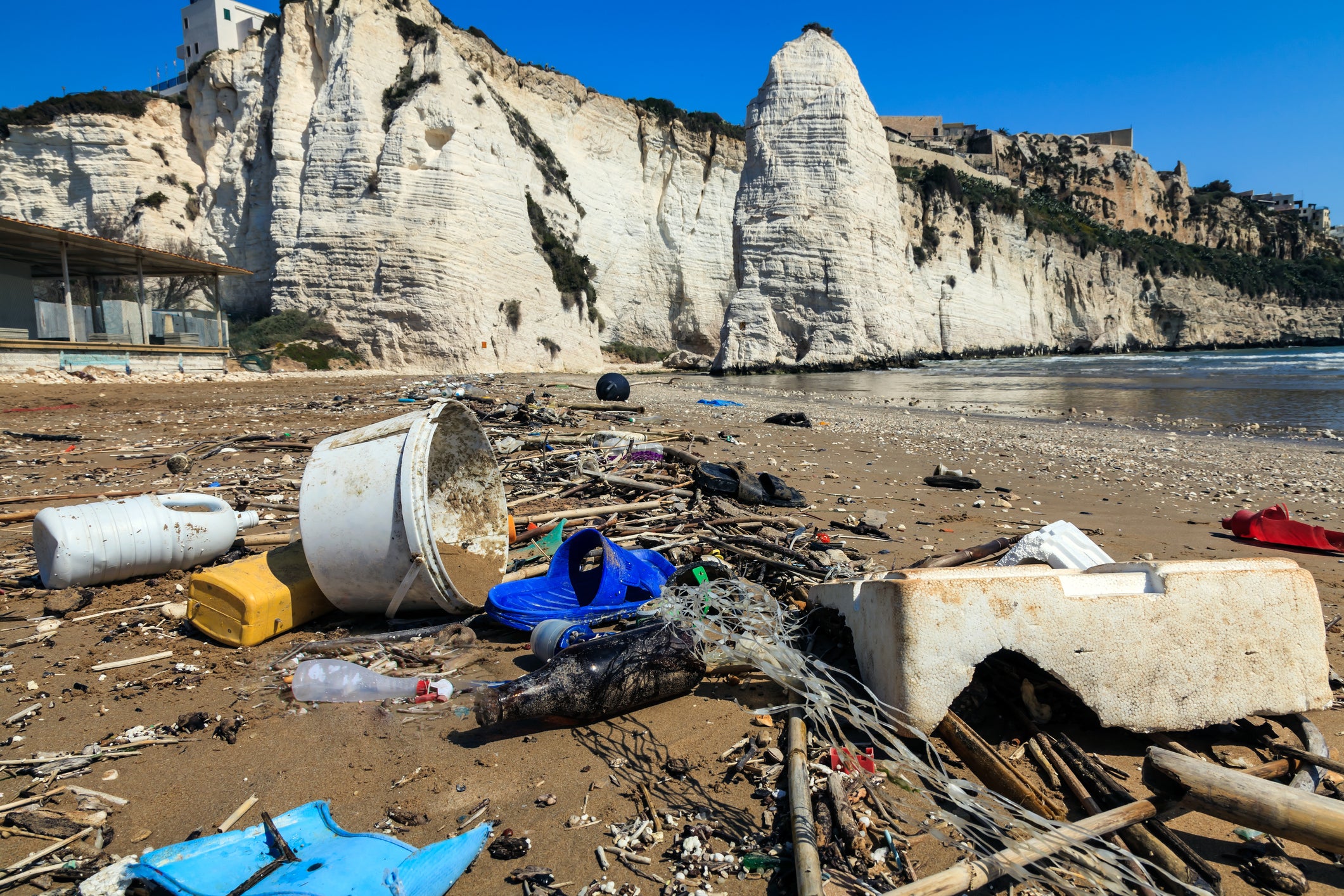A plastics tax isn’t enough to tackle pollution – we also need to invest in compostable packaging
The UK needs to embrace new technologies, writes Daphna Nissenbaum. These can bring about real, sustainable change through packaging which breaks down at about the same pace as fruit and veg

An orange is the perfect example of nature packaging itself. It is also a great example of how nature deals with its own waste. In compost, orange peel breaks down in a few days. Simple, yet remarkable. The technology now exists to mimic nature with products that can protect food and clothing much as conventional plastic does, but which break down in the same way as orange peel. These are a critical part of the path to ending plastic pollution.
Yet this month the government missed a chance to harness this technology as it revealed the detail of its plans for a plastics tax. The tax is a good move, long-awaited by campaigners against plastics pollution, but ministers are overlooking a vital issue in its design. As well as encouraging a reduction in plastics use, and a radical increase in re-use and recycling, the government has an opportunity to encourage innovative new materials, which can substitute for plastic without causing the same environmental harm. Instead, they are cutting those technologies off at the knees, by treating fully compostable materials as if they were conventional, polluting plastic.
As David Attenborough puts it in the epilogue to A Life On Our Planet: “We need to rediscover how to be sustainable. To move from being apart from nature, to become a part of nature once again.” How better to do that than to learn from nature and mimic it?
The last 12 months have brought major setbacks for the entire environmental agenda, and progress to reduce plastic waste has been among the hardest hit. The government’s flagship Environment Bill has been delayed, and single-use plastic is on the up. Health concerns in the face of coronavirus have resulted in an estimated 129 billion face masks and 65 billion gloves being used each month, mostly made of unrecyclable, valueless plastic.
Ministers are so far betting the house on recycling as the answer. Yet we produce some 300 million tonnes of plastic waste each year, and at best 10 per cent is recycled. The rest likely goes to incineration or – worse – floats into the sea. Recycling is an important part of the picture – an essential element – but it is not an answer on its own. The UK needs to embrace new technologies too. These can bring about real, sustainable change through “biomimicking” – packaging which breaks down at about the same pace as fruit and veg under composting conditions.
As food waste schemes are introduced across the whole country (up from only 40 per cent of the country today) in 2023, such solutions could revolutionise food packaging, ensuring that – for example – a bag of salad that goes off in your fridge can be disposed of safely in the food waste bin. The whole product – wrapping and contents – could break down safely, leaving no microplastics behind.
Not far away, Italy is setting an example for Europe in this field. In 2012, the Italian government banned the use of traditional plastic shopping bags, gradually replacing them with functional compostable alternatives. The use of disposable bags in supermarkets has reduced by up to 50 per cent as a result. And the compostable bags which have replaced them are disposed of in a system that mimics how nature processes waste, eventually disappearing all together. The same innovations could and should now be applied to some of the worst offenders for plastic waste, like the linings round cereal, bags for dried fruit, and the film lids on microwave meals.
Consumers overwhelmingly support a shift to these solutions, with some 85 per cent saying they prefer compostable alternatives to plastic in a recent poll. Big brands are listening too, with the Co-op, Aldi, Waitrose, Ocado and Abel & Cole all embracing compostable materials in one way or another. It’s now up to Whitehall to follow suit.
By building in the resources for local authorities to collect compostable packaging alongside food waste, setting clear commitments to reduce the import and production of conventional single use plastic, and banning the export of non-recyclable and non-compostable waste, Britain can set itself apart as a pioneer. The government still has time to improve the Environment Bill, and to recognise the positive role of compostable materials properly when it introduces the plastics tax.
In doing so, they would be responding to the clarion call of Breaking the Plastic Wave, a ground-breaking report released this year which showed that if we don’t change course, plastic waste will triple by 2040. But the authors also say that if every single one of the tools we have in the box for fighting plastic waste – reducing production, reusing more, recycling more, embracing innovative substitutions for plastic – we can get plastic pollution down by 80 per cent in the same period. There truly is a choice.
Attenborough leaves us with a sage insight in the closing sequence of his swansong series. “To continue we require more than intelligence; we require wisdom,” he says. In waging the war on plastic pollution, wisdom is about embracing every possible solution, new and old. For the oceans and the Earth’s soils, there’s not a moment to lose. When life gives us lemons and oranges, we must learn from nature’s wisdom.
Daphna Nissenbaum is CEO and co-founder of TIPA (an Israeli company manufacturing biodegradable plastic packaging), and a campaigner against plastics pollution




Join our commenting forum
Join thought-provoking conversations, follow other Independent readers and see their replies
Comments